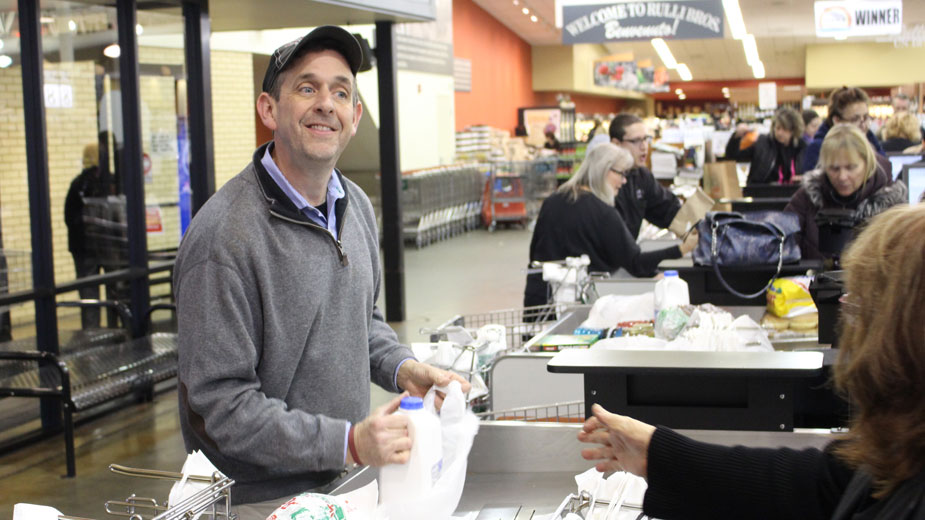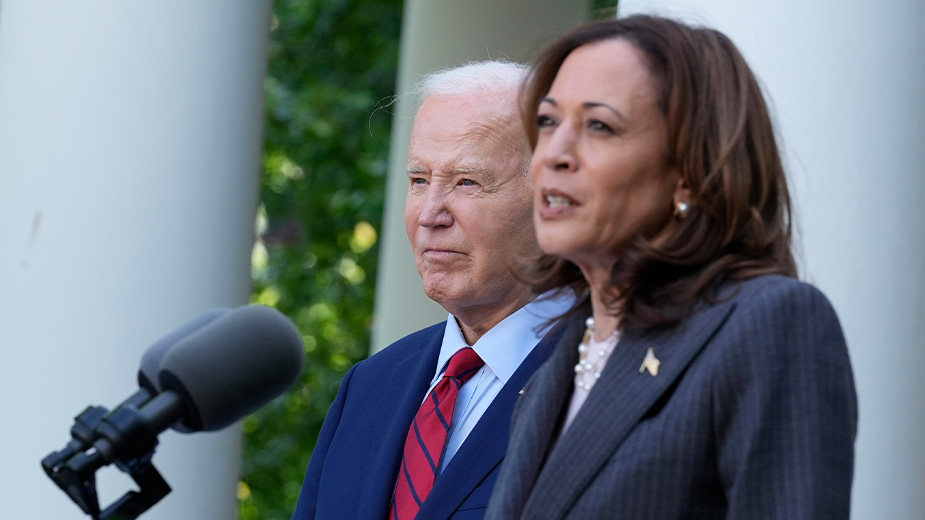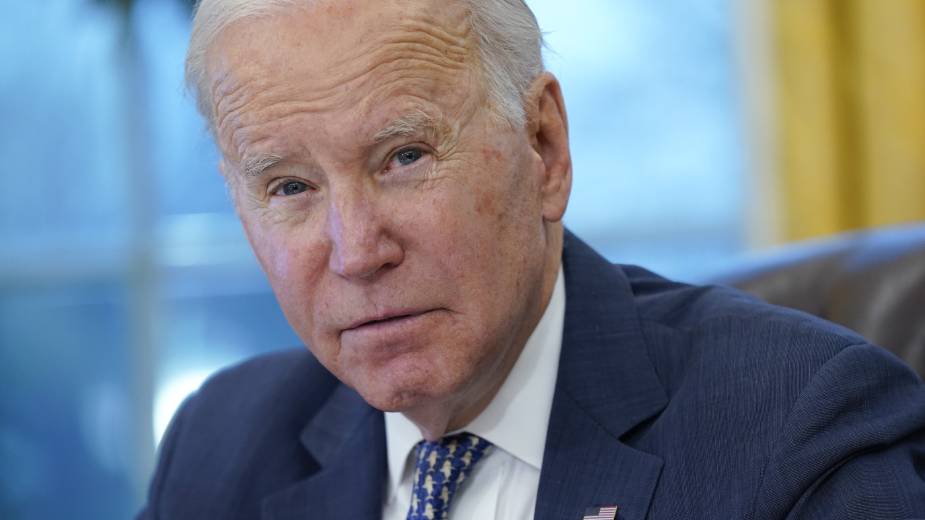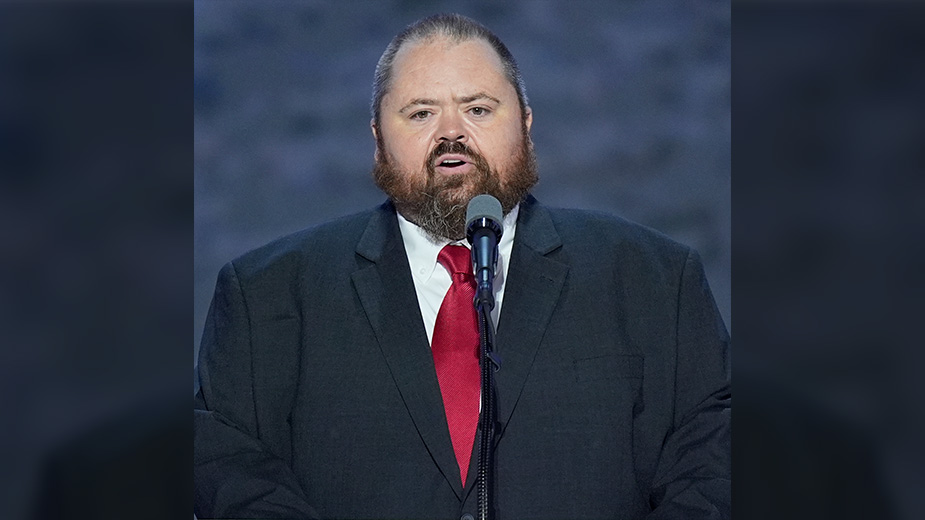Rulli Takes Business Lessons to Ohio Senate
YOUNGSTOWN, Ohio – Michael Rulli traces his interest in politics to childhood. Specifically, it was a trip with his Poland elementary school class to the Ohio Statehouse in Columbus that first got him curious about government.
During that tour, the students learned about the upper and lower chambers of the state legislature and how legislation gets passed. “It was very, very intriguing,” he says.
Now Rulli, operations manager at Rulli Bros., will make that trip regularly and participate in that process as the new state senator who represents the 33rd district.
The Leetonia Republican’s Nov. 6 victory in the district once represented by the late Harry Meshel and, more recently, Joe Schiavoni, marks the first time the seat has been held by the GOP. He defeated veteran Democratic lawmaker John Boccieri.
The 33rd district is composed of Mahoning and Columbiana counties, which were combined to form the district following the 2010 U.S. Census.
For 20 years before that, the district consisted of Mahoning and Carroll counties, with a sliver of Stark County, and in the 1980s, the district was composed of Mahoning County with a portion of Stark. In the 1970s, the district was made up of Columbiana County and a portion of Mahoning County.
Several people in Columbiana County approached Rulli, who served eight years on the Leetonia Board of Education, about running for the seat about to be vacated by Schiavoni, a Boardman Democrat leaving because of term limits.
Schiavoni ran last election with no Republican opponent. “We didn’t want that to happen” this election, Rulli says.
Columbiana County Commissioner Mike Halleck was the first to suggest that Rulli could win.
“I’ve always been able to look at people and look at the qualities that I think makes them very electable,” Halleck says.
Plus, in politics name identification is “half the battle,” he notes, an advantage Rulli had because of the century-plus history of his family’s business. Rulli Bros., founded in 1917, operates grocery stores in Boardman and Austintown.
Halleck also saw the changing political environment. Once-Democratic Columbiana County has shifted to solidly Republican, and the 6th congressional district, represented by Bill Johnson, is perhaps the most Republican district in Ohio, he says.
And in the 2016 presidential election, Donald Trump got 46% of the vote in Mahoning County, traditionally a Democratic stronghold.
“When you put all those things together, I knew it was doable,” Halleck says, and Rulli “had the personality to do this.”
“Candidate recruitment is a partnership between our campaign committee and the residents of the district,” says Alex Bilchak, political director for the Ohio Republican Senate Campaign Committee, which contributed about $263,000 to Rulli’s campaign.
“In Michael’s case, we heard from civic and political leaders throughout the Mahoning Valley who thought he offered an inspiring personal story and a unique business perspective,” Bilchak says. Rulli was a “job creator and a problem solver” rather than a career politician.
Rulli’s experience on the school board served as an example of what that perspective can bring to government.
When the Leetonia district declared a fiscal emergency, Rulli ran for the school board and helped the district regain its financial stability.
“That’s the kind of positive, results-oriented leadership voters wanted,” Bilchak says.
Among the main issues Rulli wants to address in the statehouse is the region’s brain drain.
During a meeting Dec. 11 with business and community leaders sponsored by the Youngstown/Warren Regional Chamber, he defined his approach to keeping young people in the Mahoning Valley with one word: creativity.
“You need to have creativity. You need to have a reason for young people to stay here,” he says. “Until we approach that, it’s going to keep getting worse.”
The new state senator marvels at the scene in downtown Youngstown, from the growth of the Youngstown Business Incubator to the night life at its bars, restaurants and entertainment venues.
People used to talk about the “old glories of Youngstown. But now downtown Youngstown is incredible,” he says.
At the same time, many of the main arteries leading into downtown are in “horrific” condition and need to be addressed, he says.
Now is the time, Rulli says, to capitalize on the growth of the downtown and spread that throughout the Mahoning County, starting with road resurfacing.
County Engineer Patrick Ginnetti has approximately $25 million in projects scheduled over the next decade, he notes. Roadwork would enhance the efforts in the neighborhoods by grassroots organizations such as Youngstown Neighborhood Development Corp.
“Columbus isn’t going to fix every problem,” he says. But getting local officials together to assemble priorities has to begin with him.
“To get funding for [Ginnetti’s] projects would be incredible. We could get into these neighborhoods, especially the South Side, and start bringing these neighborhoods back one street at a time,” Rulli says.
“There are all these different groups and projects where they’re trying to clean up these different neighborhoods. If the main arteries are brand-new and paved, that’s just the beginning. That’s just the steamroller effect of taking back the 33rd [district],” he says.
Rulli also touts the $10.8 million federal transportation grant awarded to Youngstown to fund road improvements on Fifth Avenue and around downtown.
The project would create an autonomous shuttle service that connects St. Elizabeth Youngstown Hospital, YSU, downtown and the campus of Joseph Co. International on the East Side (See story page 16).
That project will “change the culture of who we are,” Rulli predicts. In addition, he is intrigued by the potential impact redevelopment of the Mahoning River would have on the region.
Among the approaches for economic development Rulli advocates is having a local official – himself or a county commissioner, for example – accompany real estate companies and developers when they are showing sites to outside firms to discuss what regulations there might be or what incentives are offered.
“I’m not saying that you want to give away the store, but you want to seal the deal,” he says.
The businessman turned politician reflects ruefully on the “nightmare” that followed disclosure of a proposed $160 million regional distribution center that TJX Companies Inc. wants to build for its HomeGoods brand in Lordstown.
A group of village residents voiced their opposition to the project at the proposed site, forcing a referendum on zoning changes made to accommodate the project and initiated legal action when that failed.
The community opposition “makes no sense to me whatsoever,” Rulli says.
“That develops a culture. That develops a stigma that we’re telling the rest of the country to stay away from us. That’s absurd. It should be the exact opposite. We should be encouraging people to move here.”
Then there’s the dominant economic development issue now facing the region: the scheduled closing in March of the General Motors Lordstown complex.
Rulli says he and his family have long supported the plant and its products, but notes the company has received much from federal and state government, including benefits from the recent Tax Cuts and Job Act and the 2008 bailout.
“I don’t know how much more we can bleed for General Motors,” he says. “I think that they have to realize we have the greatest workforce.”
Rulli insists that rather than bring the views he holds to the Ohio Senate, he wants his constituents tell him how to vote.
“I’m there to represent them,” he says. It’s an approach that he says he brings from his years in the grocery business.
“The competition is brutal. I could go through a list of 30 or 40 independent grocery stores that existed when I was a little boy” but are no longer around, he says.
“You have to be adaptive to actually survive.”
The way to do that is to jump on a register or meat counter, and listen to the customers describe what is good or bad about the store, or what merchandise they wished it carried. “That’s how you do it,” he says.
Dave Deibel, owner of Boardman Steel Inc., Columbiana, recalls a local accountant once telling him that more businesspeople needed to get into politics, and Rulli is a good reason why.
Rulli, whom Deibel has known for several years, brings “a business point of view” and is “a breath of fresh air,” he says.
“You’ve got to get away from the total politics of things and help everybody out,” he says. “You help the business people. You’re going to be helping out the people working for them and you’re going to be helping everybody.”
Pictured: The grocery business gave Michael Rulli name recognition for politics, an important factor in state races.
Copyright 2024 The Business Journal, Youngstown, Ohio.



